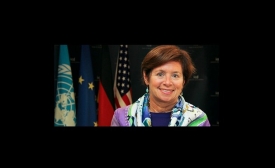afghanistan
Experts in Afghanistan say a softer line the Taliban is taking on issues like education and reconstruction projects is a tactical ploy to win broader popular support. A Taliban leader was recently quoted by Afghan media outlets as saying the movement was not opposed to education and would protect schools in areas they controlled.

The USC Center on Public Diplomacy was pleased to host CPD Research Fellow (2009-11), Ambassador Cynthia Schneider. Ambassador Schneider spoke about her assessment of the impact of arts, culture, and media in Afghanistan and Pakistan.
British Prime Minister David Cameron will call for a new start in relations with Pakistan on Tuesday, eight months after sparking a diplomatic row by saying Pakistan should not be allowed to "look both ways" on terrorism.
A popular Afghan musician known for drawing huge crowds across Afghanistan is Radio Azadi's "Person of the Year." Farhad Darya was recognized by RFE's Afghan station for his exceptional dedication to promoting music and cultural tolerance throughout the country.
After years of spending hundreds of millions of dollars trying to get its message out to Afghans, the United States is still experimenting. The State Department, for example, is trying a new communications approach in Kandahar by turning to old media — radio and television.
Foreign Minister Kevin Rudd will today launch a photographic exhibition, Through Australian Eyes, which recognises the significant contribution of Australian civilians working in Afghanistan. Mr. Rudd welcomes the exhibition, which emphasises the important role development assistance and diplomacy plays in the rebuilding of Afghanistan and the security gains being made in Afghanistan.
Rolling Stone has done it again with another scoop by Michael Hastings showing the U.S. military's manipulation of public opinion and wanton disregard for civilian leadership. The article, "Another Runaway General: Army Deploys Psy-Ops on U.S. Senators," is another example of an officer corps run amok...
U.S. military psychological operations (PSYOP or psy-ops) and information operations (IO) are supposed to be directed to local and enemy populations in overseas "theaters," specific geographical areas of armed conflict, not where you watch Auntie Mame perform.







